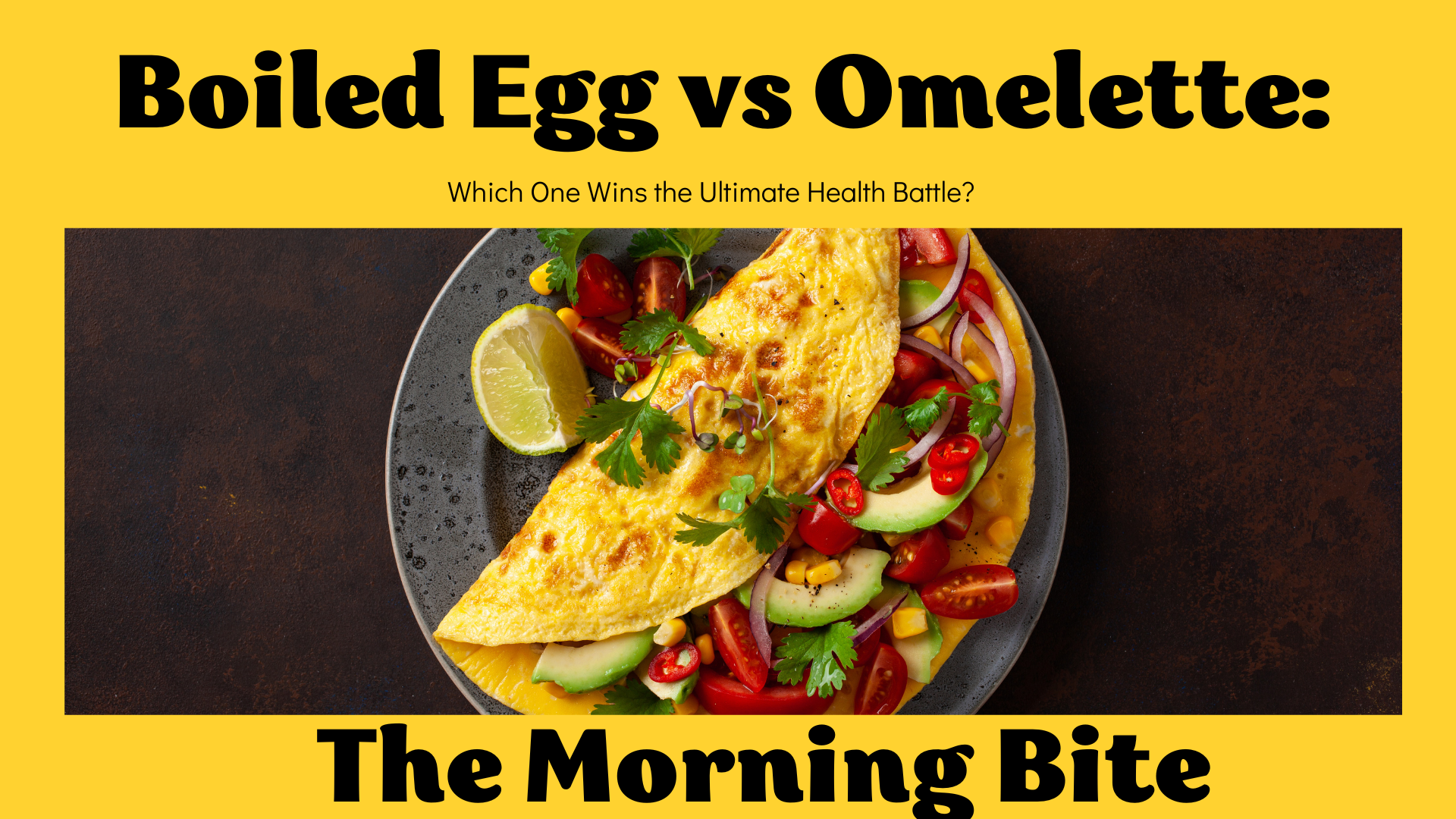
Table of Contents
Boiled Egg vs Omelette: Which One Wins the Health Battle?
When it comes to choosing a healthy breakfast, eggs often top the list. Whether boiled or whipped into an omelette, eggs are packed with nutrients and versatility. But which is healthier – a boiled egg or an omelette? Let’s dive into the details and help you make an informed choice.
Boiled Eggs: A Nutritional Powerhouse
Boiled eggs are a compact source of nutrition, offering high-quality protein and a range of essential vitamins and minerals. Here’s what makes them stand out:
- Protein: Each boiled egg contains approximately 6 grams of high-quality protein, crucial for muscle repair and growth.
- Vitamins and Minerals: Rich in vitamin B12, vitamin A, vitamin D, and essential minerals like iron, calcium, magnesium, and zinc.
- Brain and Vision Health: Choline supports cognitive function, while antioxidants like lutein and zeaxanthin promote eye health.
- Low Calorie: With just ~78 calories per egg, boiled eggs are a great choice for weight management.
- Bone Health: Their vitamin D and calcium content help maintain strong bones and may reduce the risk of osteoporosis.
Boiled eggs are also easy to digest and ideal for those with sensitive stomachs, making them a versatile and nutrient-dense option.
Omelettes: A Creative and Nutritious Meal
Omelettes bring creativity to the table, allowing for a wide variety of fillings to suit different tastes and nutritional goals:
- Customizable Fillings: Adding vegetables like spinach, bell peppers, and onions boosts fiber and nutrient content. Cheese and lean meats provide extra protein and flavor.
- Healthy Fats: Using heart-healthy oils or incorporating ingredients like avocado contributes monounsaturated and polyunsaturated fats, which support cardiovascular health.
- Nutritional Flexibility: An omelette’s calorie and fat content depend on the ingredients used, allowing you to adjust based on dietary needs.
While omelettes can be a rich source of nutrients, it’s essential to choose fillings and preparation methods wisely to avoid excessive calories or unhealthy fats.
Calorie and Cholesterol Comparison
- Calories:
- Boiled eggs: ~78 calories with negligible fat.
- Omelettes: Calorie content varies depending on ingredients and cooking methods. For instance, cheese and oils can significantly increase the calorie count.
- Cholesterol: Both boiled eggs and omelettes contain ~186 mg of cholesterol per egg. However, recent studies suggest dietary cholesterol has minimal impact on blood cholesterol levels when compared to saturated and trans fats.
Health Considerations
- Boiled Eggs: These are quick, nutrient-dense, and low in calories, making them a fantastic option for weight loss and a healthy lifestyle.
- Omelettes: While more versatile, omelettes can provide additional nutrients when paired with healthy fillings like vegetables. However, care should be taken to avoid excessive cheese, butter, or oil.
Moderation Matters
While eggs are packed with health benefits, moderation is key. Overeating eggs can lead to increased LDL (bad cholesterol) levels and may strain the kidneys in individuals with pre-existing conditions. Including a variety of foods in your diet is essential for balance and overall well-being.
The Final Verdict
Both boiled eggs and omelettes are healthy choices, each with unique advantages. Your choice should align with your dietary goals:
- Opt for boiled eggs if you’re looking for a quick, low-calorie, and nutrient-dense option.
- Choose omelettes if you prefer a customizable meal with the potential to include additional nutrients from vegetables and healthy fats.
Remember, individual dietary needs vary, so consult a healthcare professional before making significant changes to your diet.
Eggs are a timeless breakfast staple, and whether you prefer them boiled or transformed into a delicious omelette, they’re sure to provide a nutritious start to your day!






